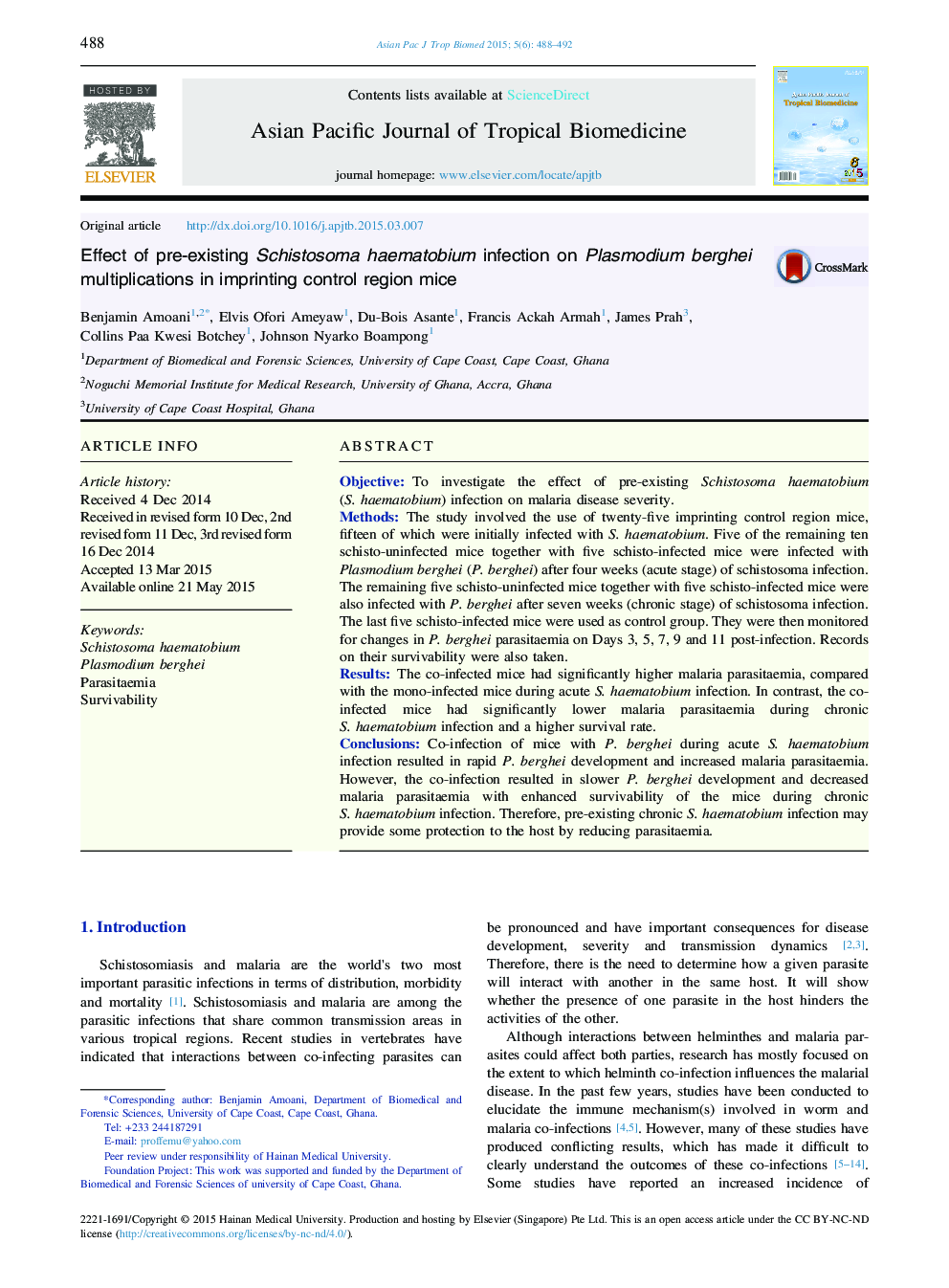| Article ID | Journal | Published Year | Pages | File Type |
|---|---|---|---|---|
| 2032720 | Asian Pacific Journal of Tropical Biomedicine | 2015 | 5 Pages |
ObjectiveTo investigate the effect of pre-existing Schistosoma haematobium (S. haematobium) infection on malaria disease severity.MethodsThe study involved the use of twenty-five imprinting control region mice, fifteen of which were initially infected with S. haematobium. Five of the remaining ten schisto-uninfected mice together with five schisto-infected mice were infected with Plasmodium berghei (P. berghei) after four weeks (acute stage) of schistosoma infection. The remaining five schisto-uninfected mice together with five schisto-infected mice were also infected with P. berghei after seven weeks (chronic stage) of schistosoma infection. The last five schisto-infected mice were used as control group. They were then monitored for changes in P. berghei parasitaemia on Days 3, 5, 7, 9 and 11 post-infection. Records on their survivability were also taken.ResultsThe co-infected mice had significantly higher malaria parasitaemia, compared with the mono-infected mice during acute S. haematobium infection. In contrast, the co-infected mice had significantly lower malaria parasitaemia during chronic S. haematobium infection and a higher survival rate.ConclusionsCo-infection of mice with P. berghei during acute S. haematobium infection resulted in rapid P. berghei development and increased malaria parasitaemia. However, the co-infection resulted in slower P. berghei development and decreased malaria parasitaemia with enhanced survivability of the mice during chronic S. haematobium infection. Therefore, pre-existing chronic S. haematobium infection may provide some protection to the host by reducing parasitaemia.
